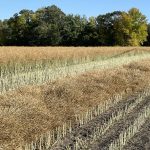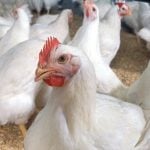The Canadian meat industry is fearful and angry this week after hearing
news out of Washington, D.C., that the new United States farm bill will
impose mandatory country-of-origin labelling in two years.
Canadian meat and livestock industry officials say trade challenges are
inevitable.
“This is trade protectionism,” said Larry Campbell of the Canadian Meat
Council. “If they bring this in, we will be looking closely at trade
agreements to see how it can be challenged.”
Read Also

Trade war may create Canadian economic opportunities
Canada’s current tariff woes could open chances for long-term economic growth and a stronger Canadian economy, consultant says — It’s happened before.
Saskatchewan cattle producer Neil Jahnke, president of the Canadian
Cattlemen’s Association, said the North American Free Trade Agreement
and World Trade Organization rules will be studied to find the best
vehicle for challenging the American rule.
“We’re extremely disappointed,” said Jahnke. “They did not heed the
advice of their own packer, retail and producer sectors. This has been
proven not to work.”
Details of the farm bill meat labeling rules are sketchy but reports
said that a voluntary country-of-origin rule would be in place for two
years as a transition. In 2004, it would become mandatory.
To be designated as American meat, the animal would have to be born,
raised and slaughtered in the U.S., affecting the status of feeder
cattle and calves sold to the U.S. from Canada.
Canada’s livestock and meat industry worries country-of-origin labels
would be a way to exclude Canadian product from the U.S. market.
Even in the U.S., some packers and livestock groups support voluntary
rather than mandatory labeling.
The National Cattlemen’s Beef Association said it worries that
mandatory labelling rules could be challenged under trade law.
“We have concerns that a mandatory country-of-origin labelling program
may have negative trade implications and place regulatory burdens not
only on retailers and packers but on cattle producers themselves,” said
the NCBA in a written statement.
However, the U.S. cattle and packer industry received some of what they
considered good news when the farm bill did not include a proposal that
would have barred packers from owning livestock destined for their
plants.














